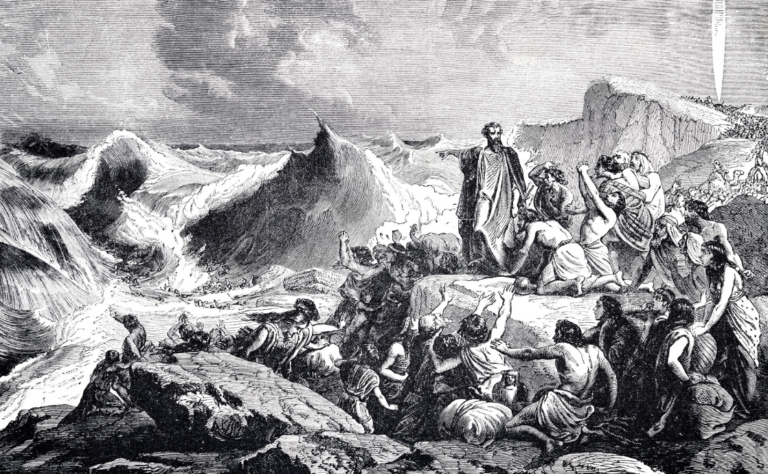The narrative surrounding Moses, a pivotal figure in the Abrahamic religions, raises profound questions regarding morality, justice, and divine authority. One of the more controversial accusations arises from the incident recorded in the biblical text, wherein Moses is accused of murder. A Baha’i perspective on this topic interrogates the layers of meaning behind such accusations, their rationale, and their implications for understanding both historical and contemporary human behavior.
To elucidate this complex matter, it is essential to first explore the incident of alleged murder in detail. According to the narrative, Moses witnesses an Egyptian striking a Hebrew slave and, in an act of apparent altruism, intervenes by killing the Egyptian. This act of violence, while perhaps intended as a protective measure, raises ethical dilemmas that lay at the heart of the accusations against him.
From a Baha’i vantage point, it is crucial to contextualize Moses’ actions within the framework of his prophetic mission. Prophets are typically depicted as embodiments of divine attributes; their actions are often interpreted as reflections of higher moral imperatives. In this regard, Moses’ reaction to seeing injustice could be construed as a manifestation of his heightened sensitivity to suffering and inequity. However, the resultant act of murder complicates this portrayal, prompting scrutiny of the means by which one seeks to achieve justice.
This leads to a deeper inquiry about the nature of ethical decision-making in extreme circumstances. The analysis of Moses’ choice exemplifies the perennial struggle between intention and outcome. While Moses may have intended to protect the oppressed, the resultant act of taking a life inevitably generates a multifaceted moral discourse. In the Baha’i teachings, the importance of justice is paramount, yet justice is intricately linked to mercy and compassion. The pertinent question arises: can a righteous intention ever justify an immoral act?
Furthermore, the societal context of the narrative cannot be overlooked. The Israelite community was subjugated, yearning for liberation and grappling with trauma from systemic oppression. Moses, as an emerging leader, faced an extraordinary moral quandary. In this light, the accusations against him are not purely a judgment of his actions but also a reflection of collective trauma. Communities often project their unresolved conflicts onto figures who represent both hope and struggle.
Expanding the discussion, it is essential to consider the theological implications of accusing a prophet of murder. In many religious traditions, prophets are seen as infallible, conduits of divine will. Accusations against them challenge the very foundations of faith. From a Baha’i perspective, it is acknowledged that prophets are, indeed, human and subject to the same moral vicissitudes as any individual. This realization fosters a more compassionate understanding of their struggles and failures, embracing the complexity of human nature.
Moreover, the Baha’i interpretation offers an opportunity to explore themes of forgiveness and redemption. The narrative does not end with the act of murder; it continues with Moses fleeing Egypt, leading to his eventual role as a liberator. This trajectory underscores the concept that moments of moral failing can be transformative, enabling individuals to grow and evolve. Baha’u’llah’s teachings emphasize the power of individual transformation, urging followers to recognize the potential for renewal in every life. Consequently, the act of accusation may also serve as a pathway to understanding, healing, and ultimately, forgiveness.
In addition, intersecting social justice with spiritual contemplation broadens the conversation to contemporary societal issues. Throughout history, individuals who challenge oppressive systems often find themselves vilified. The narrative of Moses invites a reflective examination of present-day activists, leaders, and those who confront wrongdoing. Analyzing the parallels between Moses’ experiences and those of modern social justices advocates encourages a broader understanding of sacrifice, moral courage, and the consequences of striving for justice.
It is also vital to delve into the implications of how accusations can serve as a means of control or repression. Throughout history, figures who challenge the status quo are frequently accused of various transgressions, as a means to delegitimize and undermine their efforts. This dynamic raises pertinent inquiries about the mechanisms through which societies maintain power; it invites a critical examination of how narratives are shaped and utilized to serve particular agendas.
In conclusion, the Baha’i interpretation of the accusations against Moses transcends simplistic binaries of good and evil. It invites a rich, nuanced dialogue that encompasses themes of moral complexity, the struggle for justice, and the potential for redemption. The incident serves as a profound reminder of the intricate tapestry of human existence, where our intentions are often entangled with the outcomes of our actions. Ultimately, this narrative invites us to engage with our own moral convictions and inspires us to strive for greater justice, compassion, and understanding both within ourselves and in our communities.
